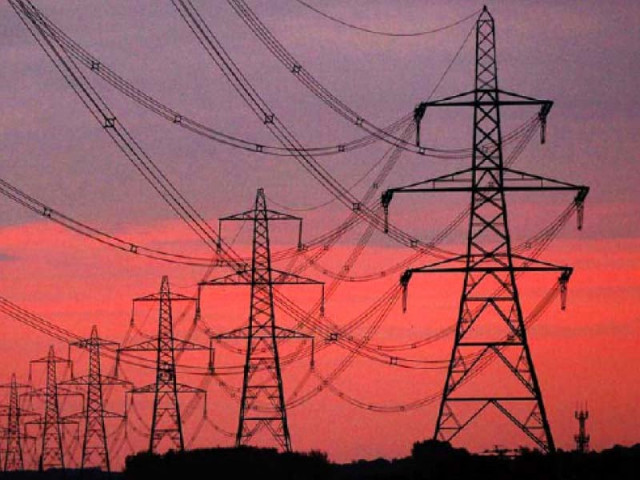Revised IPP deal likely to win CCoE nod today
Cabinet panel to consider Power Division’s proposal to pay Rs399 billion to IPPs; variations made in MoU

Independent Power Producers (IPPs) seem to be the winner in a revised deal with the government as they are set to receive Rs399 billion along with continuation of the tariff and capacity payments with the US dollar indexation.
The Cabinet Committee on Energy (CCoE) will meet on Monday [today] to give the goahead to a deal with the IPPs.
The Power Division has sought approval of the CCoE to pay Rs399 billion to the IPPs and the variations made in the Memorandum of Understating (MoU) signed with power producers. The Inquiry Committee on Power Sector had pointed out that the IPPs had received Rs1,000 billion excess payments.
It had further noted that indexation with dollar and capacity payments were major contributors to excess payments.
In the revised deal, the government has also made amendments in the MoU signed with IPPs on December 12, 2020. Moreover, the government is going to continue dollar indexation with a higher ceiling that would continue to burden the power consumers due to the increase in power tariff. Out of the total 47 IPPs, the government had initiated agreements with 44.
IPPs under power policy 1993
This group of IPPs had agreed to remove 50 per cent US dollar indexation on reduced capacity. The master agreement will be used as the floor for the exchange rate and Rs168.60 as the ceiling for the said exchange rate.
The risk of devaluation of the USD shall be with the power purchaser. This risk, however, is adequately covered through 11 per cent reduction in capacity purchase price and variable O&M of this group. The savings to be obtained through this arrangement will be fully eroded only if the US dollar devalues below around Rs130 per US dollar.
2002 Power Policy
The exchange rate agreed in the MoUs was Rs148/USD which compounded to the USD rate on the date of signing of the MOU on August 12, 2020.
It was coupled with an increase of the RoE to 17% from 15% to prevent further increase in tariff on account of further devaluation of Pakistan rupee.
This did not take into account the devaluation of the US dollar which created an anomaly. In order to address this anomaly, the agreements provided that the US dollar indexation on this component will continue as per the respective tariff on the date US dollar reaches Rs168/ USD.
Thereafter Return on Equity (RoE) would be fixed at 17 per cent per annum on US dollar exchange rate of Rs148/USD for local investors with no further indexation.
The 2002 Power Policy provided an Arbitration Submission Agreement option to cater for all IPPs under the 2002 Power Policy, instead of referring the matter to the National Electric Power Regulatory Authority (Nepra) for amicable resolution of the Issue.
Certain IPPs out of the twelve under the 2002 Power Policy, which had agreed in the MoUs to refer the case of excess profitability to Nepra, were reluctant for incorporation of the same into the master agreements.
The corresponding clause — Clause 9 — of the MoU which is the same for all twelve IPPs, says in order to assess if IPPs hate rate any excess profits, the received numbers between the committee and the IPPs shall be submitted to Nepra.
“As a legal body vested with the authority for tariff, Nepra shall hear and decide this matter in accordance with the 2002 Power Policy, tariff determinations and PPAs and provide for a mechanism for recoveries where applicable.”
The Implementation Committee discussed the issue at length with these IPPs and agreed with the alternate option of the Arbitration Submission Agreement for all IPPs under the 2002 Power Policy.
Furthermore, the IPPs have agreed that this arbitration will be binding and final as far as the dispute of excess profitability concerned.
One paramount consideration to agree with locally-based arbitration was to avoid the situation where the IPPs could have eventually taken the dispute to the London Court of International Arbitration (LCIA), and further to avoid declaration of Government of Pakistan Event of Default under the Implementation Agreements) which could potentially have resulted in significant loss to the public exchequer.
The Implementation Committee has agreed the payment mechanism with the 44 IPPs to clear the outstanding payables as on November 30, 2020 amounting to Rs399 billion. As per payment mechanism, the payment will be made in two installments.
The first installment will be 40 per cent of the payables and will be paid 1/3 in cash; 1/3 in five per cent Sukuk and 1/3rd in ten years PIBs bonds at floating rate of T-Bill plus 70bps and remaining 60 per cent of the payables in six months of the first installment in almost the same manner.



















COMMENTS
Comments are moderated and generally will be posted if they are on-topic and not abusive.
For more information, please see our Comments FAQ